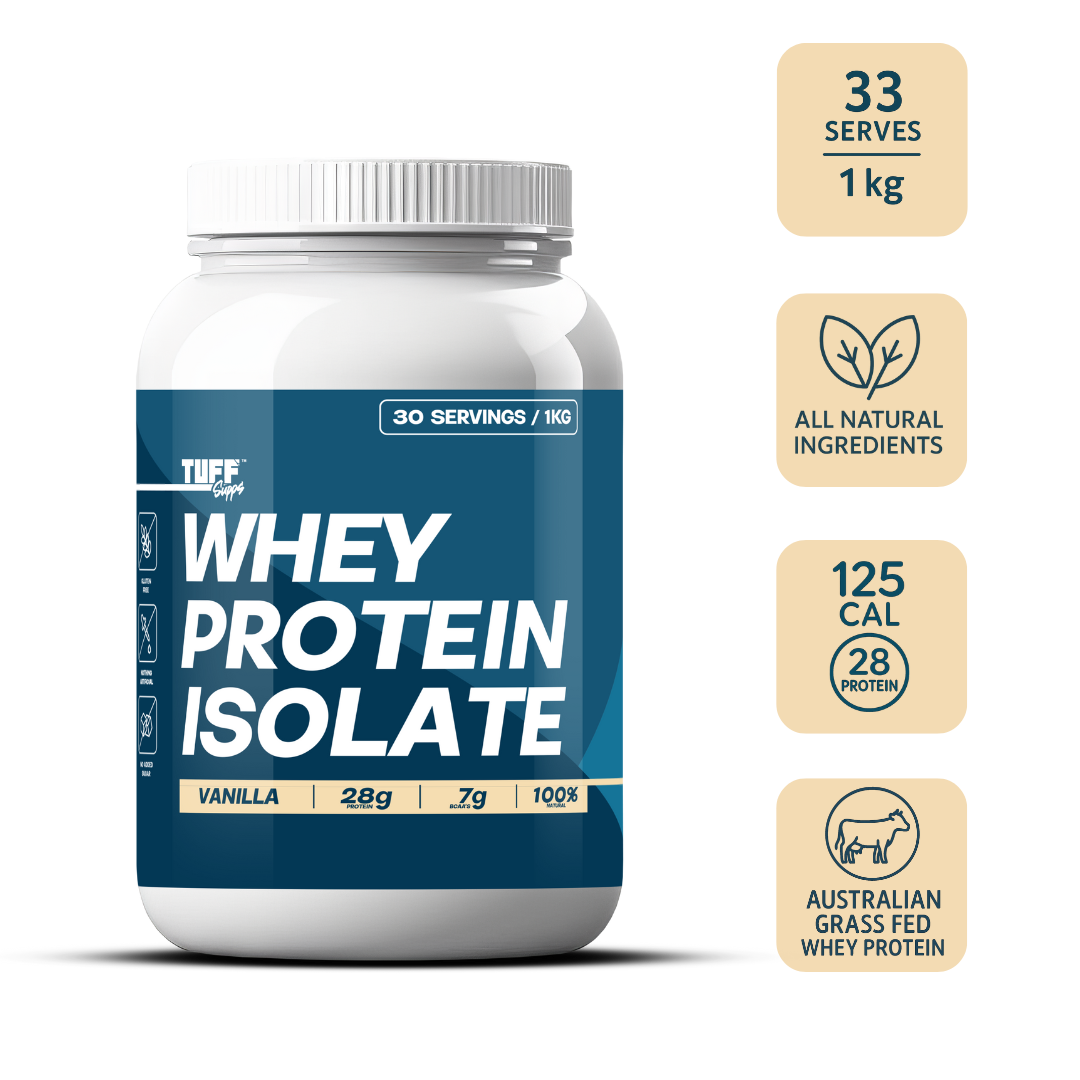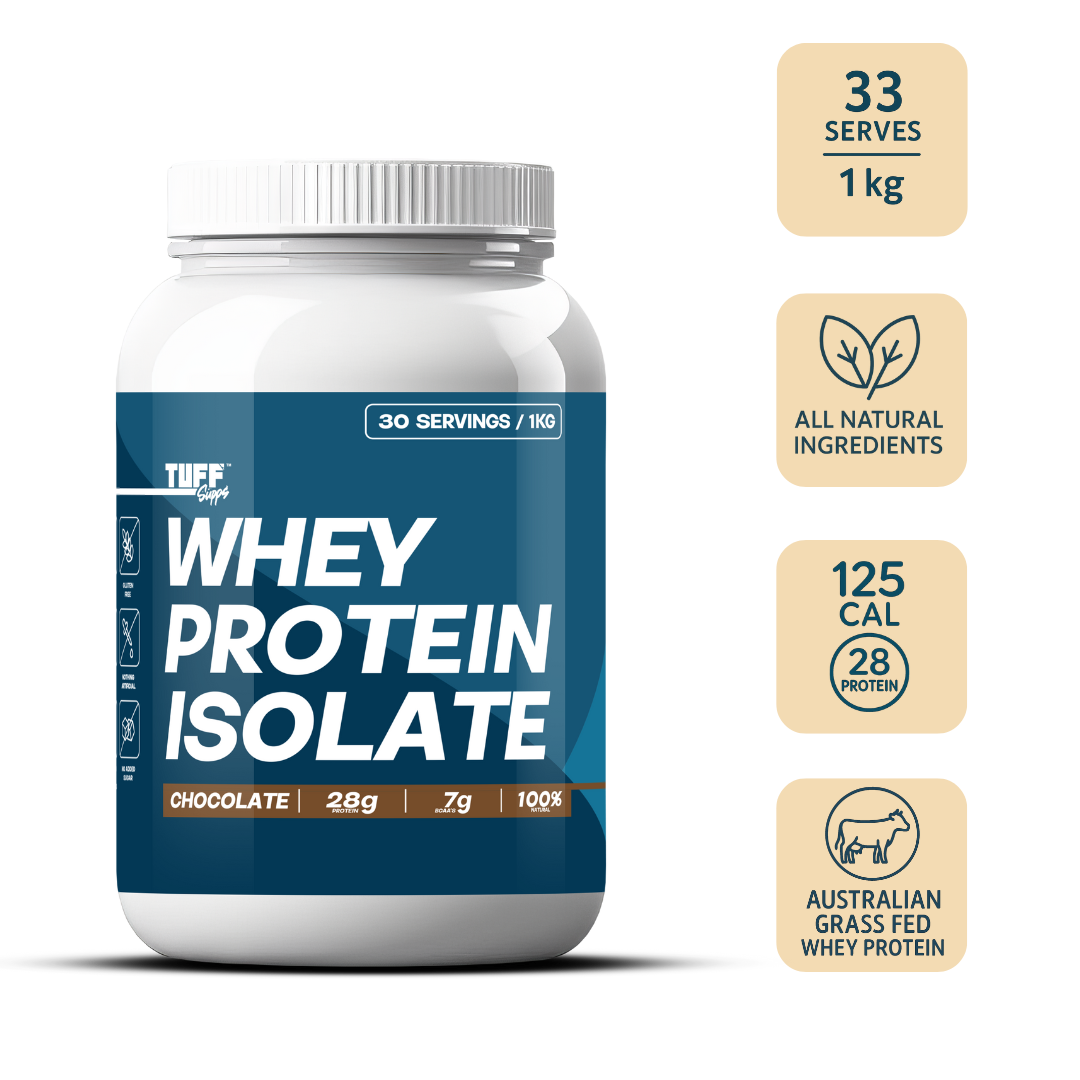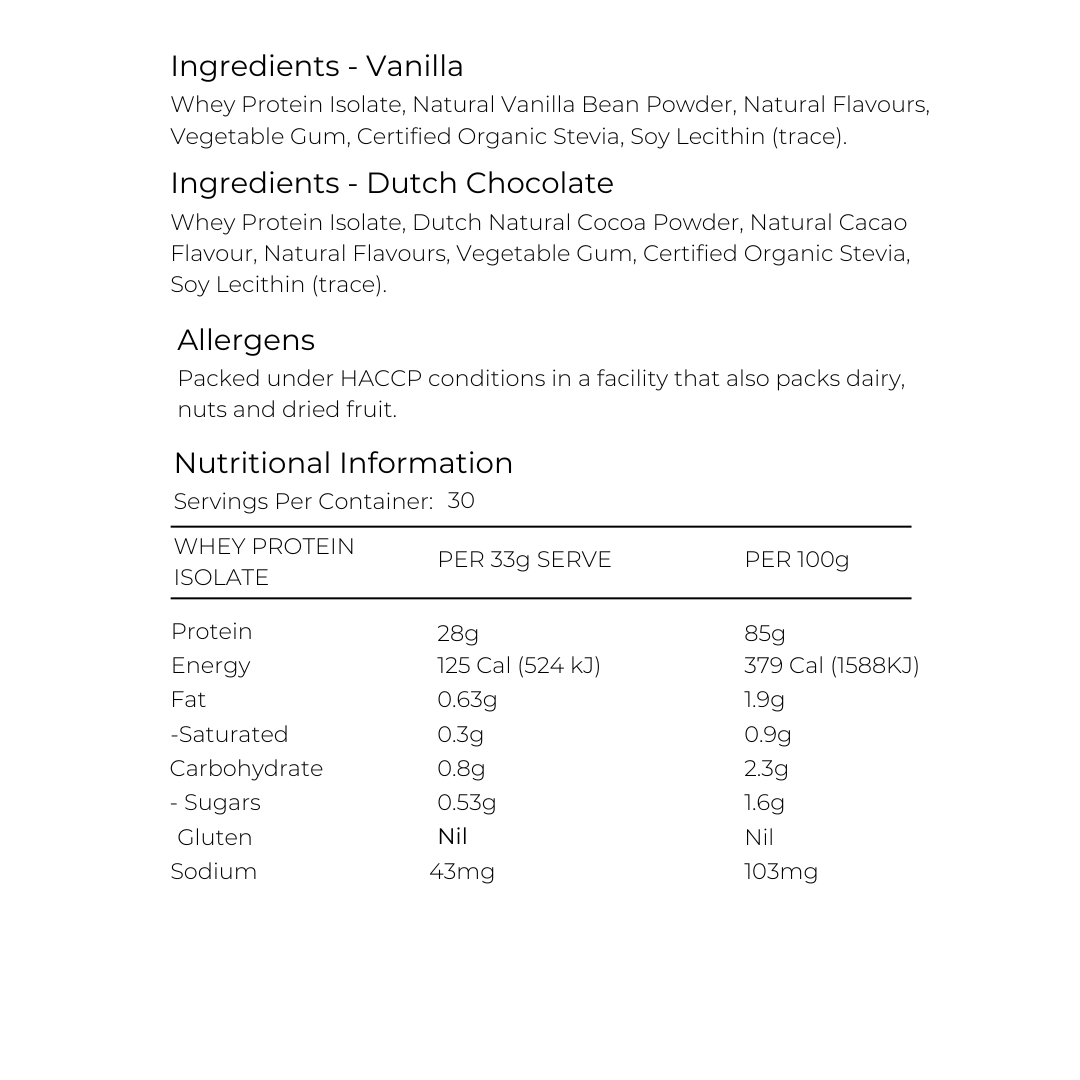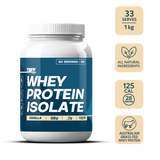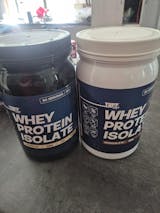Whey Protein Isolate
✓ Ideal for shredding and weight loss
✓ Enhances recovery
✓ Only trace amounts of lactose, fat and carbohydrates



Description
Protein doesn’t build muscle. Consistently hitting high-quality protein targets does.Whey isolate just makes that easier.
What it does
Tuff Supps Whey Protein Isolate delivers fast-absorbing, ultra-lean protein to support muscle recovery, lean growth, and body recomposition—without unnecessary calories, digestive issues, or artificial junk.
What makes ours different
We stripped whey back to what actually matters: purity, absorption, and compliance.
-
27.8g protein per 30g serve
-
Whey Protein Isolate for rapid digestion and amino acid delivery
-
Less than 1g fat and carbs per serve
-
99.9% lactose-free for easy digestion
-
Naturally flavoured & sweetened with organic stevia
-
No artificial colours, fillers, or sweeteners
-
Made and packed in Australia
It’s protein that does its job—and gets out of the way.
What you will experience using it
-
Faster post-workout recovery
-
No bloating or heavy stomach feeling
-
Easier daily protein intake without extra calories
-
A smooth, creamy shake you’ll actually look forward to
When protein is easy to consume, results follow.
Tuff Supps Whey Protein Isolate fits:
- Post-workout
- First thing in the morning
- Between meals
-
During fat-loss phases
Simple. Reliable. Effective.
Bottom Line
If your goal is lean muscle, recovery, or body recomposition, protein quality matters.
This gives you maximum protein with minimal compromise.
That’s the point.
Premium Protein Ingredients
Tuff Supps Flavour Guarantee
Experience ultimate peace of mind with our 30-day Money Back Guarantee! If you're not delighted with your purchase or experience any adverse reactions, simply notify us within 30 days of receipt, and we'll refund your order, no questions asked. Just send the product back to us within the timeframe, and while return shipping is at your expense, the confidence and satisfaction you'll gain are invaluable. Say goodbye to buyer's remorse and hello to worry-free shopping today!
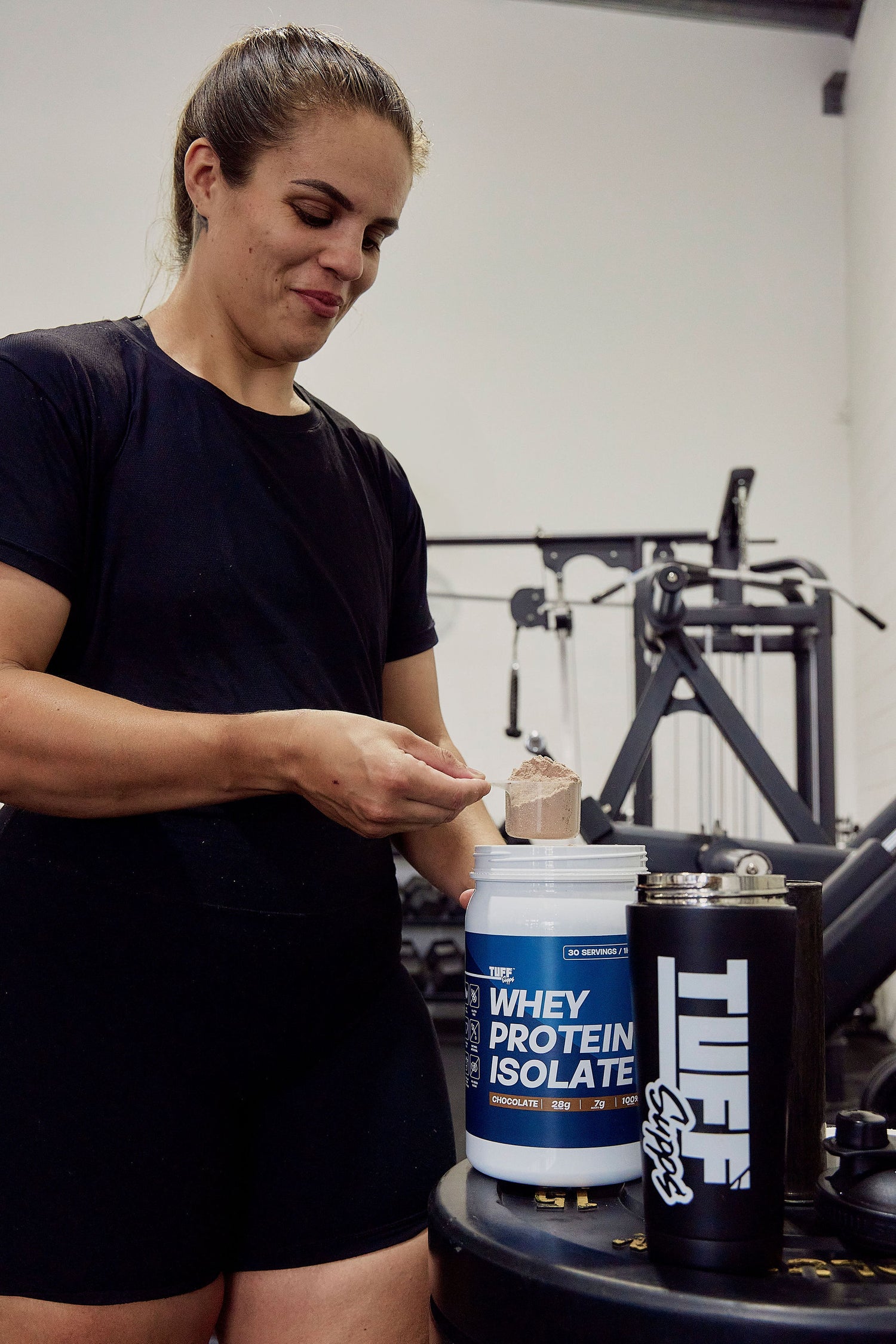
Pure, Delicious, and Naturally Flavoured
Premium Protein Ingredients
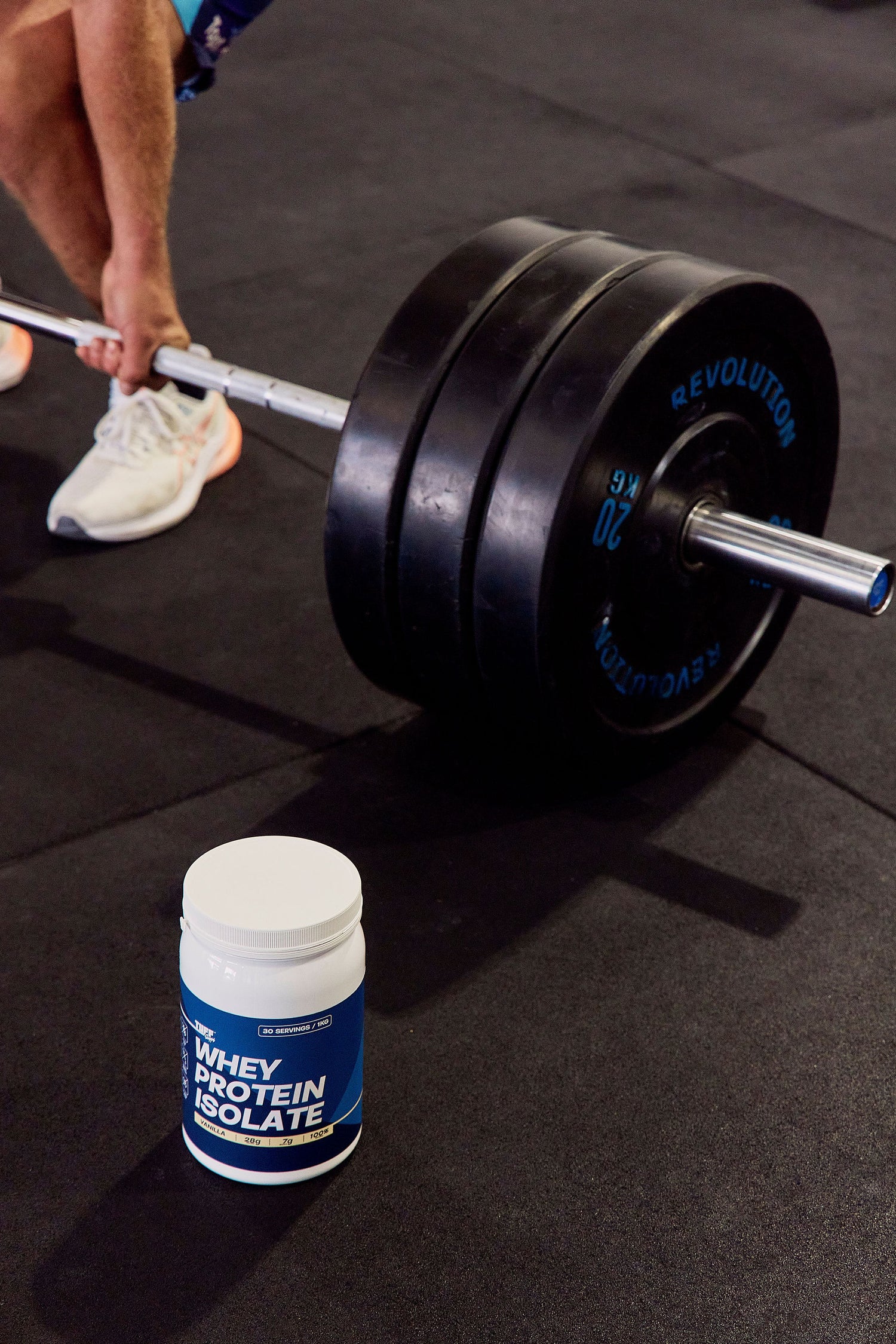
Pure, Fast-Absorbing Protein for Optimal Recovery
Optimal Support for Your Goals
100% Australian-Sourced Excellence
Proudly made from the milk of pasture-raised, grass-fed Australian cows, our Native Whey Protein Isolate delivers premium quality straight from the source.
Superior Protein Powerhouse
With an impressive 90% protein content and a whopping 28g of protein per serving, Tuff Supps Native Whey provides the ultimate fuel for your muscles, promoting optimal performance and recovery.
Rich in Essential BCAAs
Naturally abundant in branch chain amino acids (BCAAs), our whey protein supports muscle repair and recovery, helping you push boundaries and achieve peak fitness levels.
Innovative Preparation
Utilizing cutting-edge, lower-temperature undenatured technology, we ensure that the integrity of our whey proteins remains intact, preserving their biological value and maximizing their benefits.
Diverse Protein Profile
Our Native Whey is rich in various high biological value whey proteins, including α-lactalbumin, Osteopontin, β-lactalbumin, and Immunoglobulins, offering a comprehensive spectrum of nutrients for optimum health and vitality.
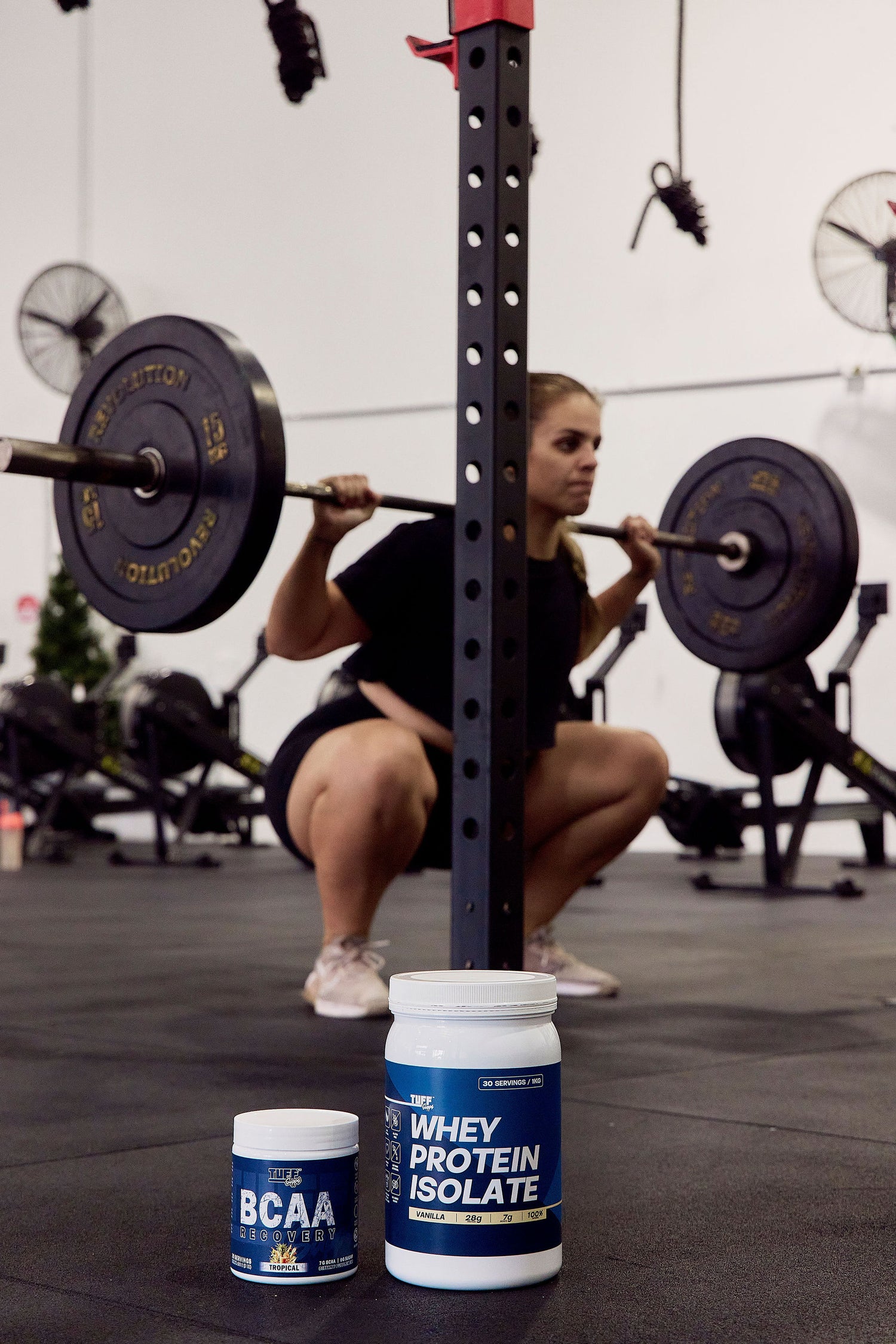
Shop with Confidence, Satisfaction Guaranteed
Tuff Supps Flavour Guarantee
Experience ultimate peace of mind with our 30-day Money Back Guarantee! If you're not delighted with your purchase or experience any adverse reactions, simply notify us within 30 days of receipt, and we'll refund your order, no questions asked. Just send the product back to us within the timeframe, and while return shipping is at your expense, the confidence and satisfaction you'll gain are invaluable. Say goodbye to buyer's remorse and hello to worry-free shopping today!
Whey Protein FAQs
Get the answers you need about our whey protein products, including details on ingredients, benefits, usage, and more. Our FAQs cover everything from protein sources to mixing tips, helping you make the most of your supplement.
How is Tuff Supps' Protein Powder made?
At Tuff Supps, we take great pride in the quality and purity of our whey protein powder products. Our manufacturing process involves several key steps:
- Sourcing: Our whey protein is sourced 100% from Australian suppliers, ensuring they meet our strict quality standards for purity and potency.
- Filtering and micronization: Our protein powders undergo a specialized filtering and micronization process, which grinds the protein particles into an ultra-fine powder for improved mixability and digestibility.
- Cold processing: We use ultra cold processing techniques to preserve the integrity of the protein molecules and prevent denaturing or degradation.
- Blending and packaging: The pure, micronized protein is then blended with other clean, high-quality ingredients (if applicable) and packaged in our signature airtight containers to maintain freshness and potency.
By adhering to these meticulous manufacturing processes, we can guarantee that our customers receive the highest-quality, most effective protein powder products on the market.
What types of protein powder are available, and which one is best?
The most common types of protein powder include whey protein isolate, whey protein concentrate, casein and various plant-based blends. The "best" option depends on your individual goals, dietary preferences, and potential allergies or intolerances.
When is the optimal time to consume a protein shake?
While protein can be consumed at any time of day, there are a few key windows where it may be most beneficial:
- Post-workout: Consume within 30-60 minutes after exercise to kickstart muscle repair and recovery.
- Morning: A protein-rich shake can help start your day with a nutritious and filling meal.
- Between meals: Protein shakes can serve as a convenient snack to help meet your daily protein needs.
How much protein powder should I take daily?
The recommended daily intake of protein for active individuals and athletes can range from 0.5 to 0.8 grams per pound of body weight. However, the specific amount can vary based on your fitness goals, activity level, and overall caloric intake. It's generally advisable to spread your protein intake evenly throughout the day.
Can I use protein powder as a meal replacement?
While protein powder can be a convenient and nutritious option for a meal replacement, it's important to ensure that you're also getting adequate amounts of other essential nutrients, such as healthy fats, fiber, vitamins, and minerals. Consider blending your protein powder with fruits, vegetables, nut butter, or other nutrient-dense ingredients to create a more balanced meal replacement shake.
Can I take protein powder when pregnant or breastfeeding?
While protein powder supplements are generally considered safe when consumed in moderation, it's advisable to consult with your healthcare provider before taking any supplements during pregnancy or while breastfeeding. Some key considerations:
- During pregnancy and breastfeeding, your protein needs increase slightly, and a high-quality protein powder can help you meet those needs if you're struggling to get enough from your diet alone.
- However, some protein powders may contain additives or artificial sweeteners that are not recommended during pregnancy or breastfeeding.
- It's best to choose a clean, minimally processed protein powder without unnecessary additives, such as Tuff Supps' pure whey or plant-based options.
- Monitor your total protein intake carefully, as excessive protein consumption during pregnancy may not be ideal for the developing fetus.
Can children and/or teenagers take protein powder supplements?
Protein powder supplements can be appropriate for children and teenagers, especially those who are physically active or involved in sports, as long as they are used responsibly and under the guidance of a healthcare professional or registered dietitian.
What does protein powder do?
Protein powder supplements serve several key functions:
- Increases daily protein intake: Protein powder provides a convenient and concentrated source of high-quality protein, making it easier to meet your daily protein needs, especially for active individuals and athletes.
- Supports muscle growth and repair: Adequate protein intake is essential for building and maintaining lean muscle mass, as well as repairing and recovering from intense workouts.
- Promotes satiety and weight management: Protein is the most satiating macronutrient, helping you feel fuller for longer and potentially aiding in weight management efforts.
- Supports overall muscle health: Protein is necessary for various bodily functions, including enzyme and hormone production, immune function, and tissue repair.
- Convenient meal replacement or snack: Protein shakes can serve as a quick and nutritious meal replacement or snack option for busy lifestyles.
Is protein powder good for weight loss?
Protein powder can be a valuable tool for weight loss efforts when used correctly and as part of a balanced diet and exercise regimen. Here's how protein powder can support weight loss:
- Increased satiety: Protein is the most satiating macronutrient, meaning it helps you feel fuller for longer, which can aid in controlling calorie intake and preventing overeating.
- Preserves lean muscle mass: When in a caloric deficit for weight loss, adequate protein intake is crucial for preserving lean muscle mass while losing fat.
- Supports metabolism: A higher protein intake can help support a healthy metabolism, which can contribute to burning more calories throughout the day.
- Convenient meal replacement: Protein shakes can serve as a convenient, portion-controlled meal replacement option, making it easier to adhere to a calorie-controlled diet.
However, it's important to remember that protein powder alone is not a magic solution for weight loss. It should be combined with a balanced diet rich in whole, nutrient-dense foods and an active lifestyle incorporating regular exercise. Additionally, be mindful of your total calorie intake, as consuming too many calories, even from protein powder, can hinder weight loss efforts.
Does protein powder go off or expire?
Yes, protein powder does have a shelf life and can go off or expire. Here are some key points about the shelf life of protein powder:
- Most protein powders have a "best by" or expiration date printed on the container, typically ranging from 1-2 years after the manufacturing date.
- Over time, protein powder can start to degrade, lose its potency, and develop an unpleasant taste or odor.
- Exposure to heat, moisture, and air can accelerate the degradation process, so it's important to store protein powder in a cool, dry place with the lid tightly sealed.
- Once opened, it's best to consume protein powder within 6-12 months for optimal freshness and quality.
- Signs that a protein powder has gone bad include a rancid smell, clumping, discoloration, or an off-putting taste.

